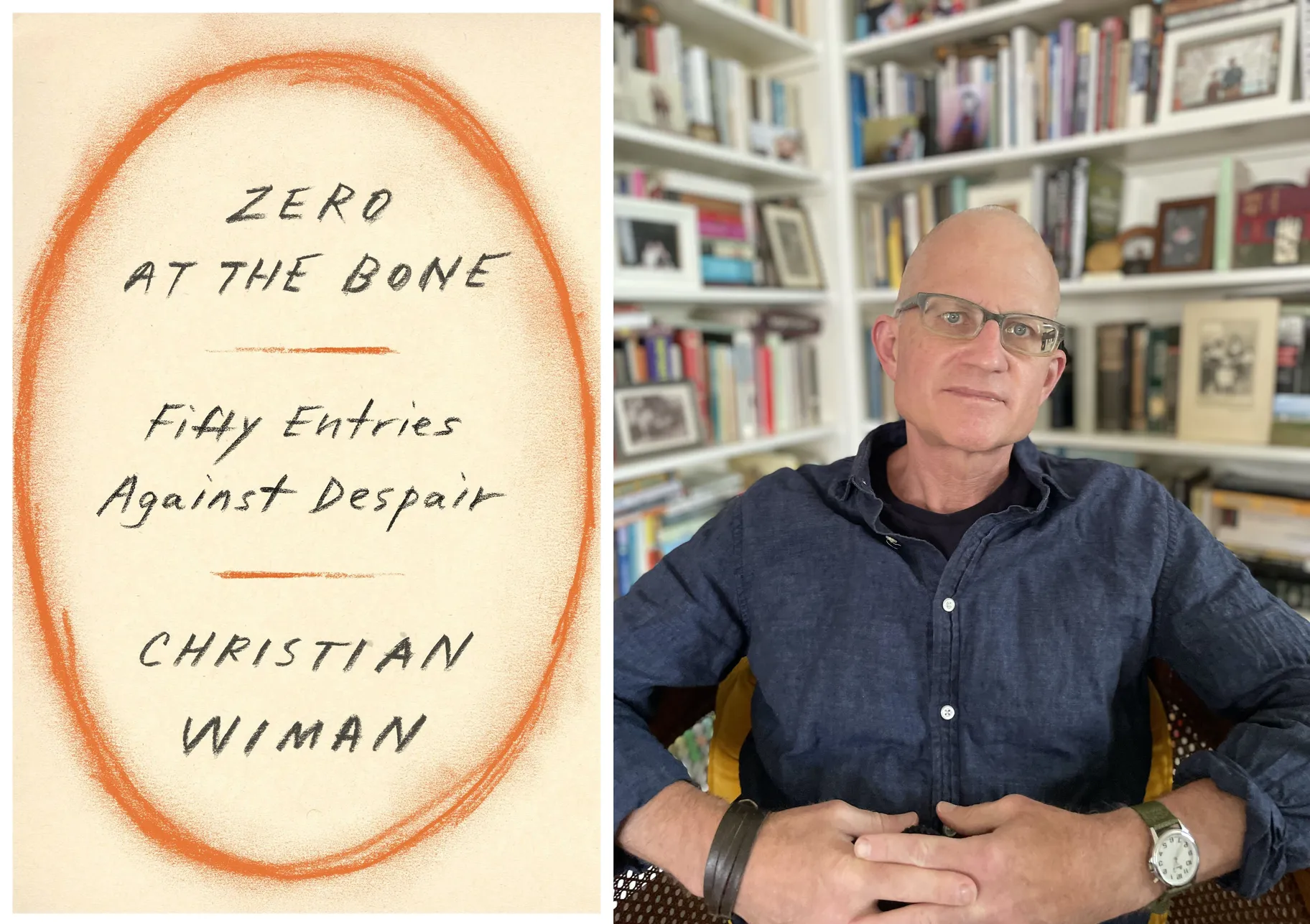When poet Christian Wiman was diagnosed with cancer at age 39, his prognosis was grim. He had a rare and incurable form of lymphoma and was given five years to live. Today, 19 years later, his cancer is in remission but the struggle was tough.
“I've had a really rough time,” says Wiman, who collects his inquiry into faith and God in his latest collection of poems and reflections, Zero at the Bone: Fifty Entries Against Despair. “I wasn't sure I would see this book published.”
Enduring countless and often painful treatments, Wiman was accepted to receive a new type of therapy, CAR-T cell, and today Wiman has a new lease on life.
“I was so thoroughly prepared to die that it has been quite disorienting to come back and find myself plunked down right among all my old problems and insecurities and anxieties and necessities,” he says.
However, Wiman’s illness and the associated anguish and despair continue to define his writing, poetry, and how he views faith, family, and the world. Death has never been far from his thoughts; the unknowingness was a constant in his life and work.
“Ultimately, we can't know anything, concretely or ultimately or absolutely,” Wiman says. “There is this unknowingness that is with us all the time, that’s within everything we do and everything we know. And I think part of maturing in life is learning to see that as a gift rather than a torment.”
A devout Christian, Wiman views his faith and his reignited relationship to God as an active practice.
“The way I experience God is in relationship, in activity, in making art, in relating with people, in experiencing the world, when I have some sense that my life is coextensive with the life outside of me,” he explains. “I've defined it in the book as a kind of reciprocal seeing … [My] understanding of God is in that action, in that activity, and not in what that activity points to.”
In Zero at the Bone: Fifty Entries Against Despair, Wiman often describes the writing of a poem as an act of faith.
“Even though I know that this is a dead end and that poetry is a means, in order to write a real poem, in that moment you have to give everything and you have to write as if nothing else matters but this,” he says. “And I think there's an analog to faith there.”
Whether Wiman’s work will live on after his death has no impact on his writing.
“I had the notion of literary immortality. I'm not hung up on that anymore,” he explains. “I've done the very best I could, in terms of going all in to what gift I was given. I can't control whether it is going to speak to the people who come after me and I'm not bothered by that. It can all vanish and it was still a good way to spend a life and meaningful.”

“People who managed to attain some sort of peace with death,” says Christian Wiman, “do a lot better for their families … and so I was very determined to make my death mean something in the lives of my families.” Photo credit Danielle Chapman. In Zero at the Bone: Fifty Entries Against Despair, author Christian Wiman says that, “In order to write a real poem in that moment, you have to give everything and you have to write as if nothing else matters but this. And I think there's an analog to faith there.”
Delve deeper into life, philosophy, and what makes us human by joining the Life Examined discussion group on Facebook.
